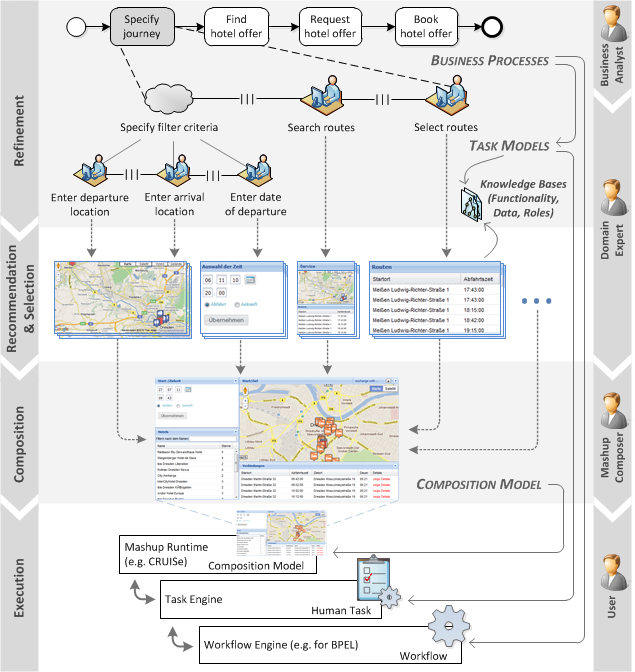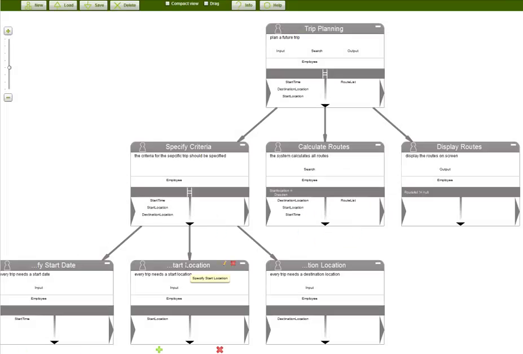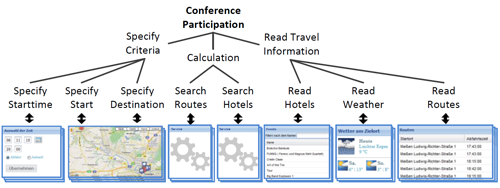







The aim of DEMISA is a model-driven development process a model-driven development method for composite and process-oriented mashup applications. Business process models are adequate to cover the big picture of goals, roles and activities within an organization. Since there are comprehensible notations available, such as BPMN, business process models are well understood by business analysts and managers. However, they are not suitable to define fine-grained requirements for dynamic and composite user interfaces. Moreover, a business analyst is limited in the knowledge of how business goals are exactly reached. Therefore, we propose business process models as preliminary requirements and as a starting point for a model-driven development process.
DEMISA involves the domain expert who has more precise knowledge about his tasks and required data to specify the requirements for a mashup composition. Therefore, the business processes are refined by a task model. This enabled the recommendation of mashup components during the composition phases and enables the communication of requirements with mashup composers and component developers. This reduces the overall development effort.
Then, the mashup composer can create a composite mashup application and connect it with organizational workflows. Therefore, the continuous model-driven development of a mashup application is enabled by the integration of business process models and the refinement with the help of task models. This implies reusability, interoperability and quality improvement in mashup application development.

On the basis of existing task meta model, such as CTT, a minimalistic task ontology has been created to enable the semantic modeling of task-based requirements. This also enables semantic reasoning and the recommendation of mashup components. In contrast to CTT, the task ontology enables also the semantic annotation of tasks and data objects.

To support the domain expert, a task editor has been developed. It enables the lightweight modeling of activities and actions as well as input and output objects by semantic annotation.
The user-friendly selection of semantic concepts from complex ontologies is a challenge that is addressed by a special visualization tool.

On the basis of the semantic task model a algorithm has been developed in order to rate also semantically annotated mashup components. Thereby, input data of system tasks is mapped to parameters of component's operation and output data is mapped to component's events. Based-on the results the applicability of a component to realize a certain task can be inferred.

